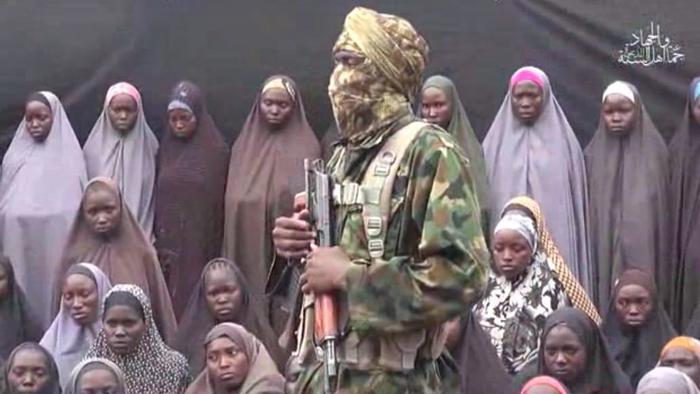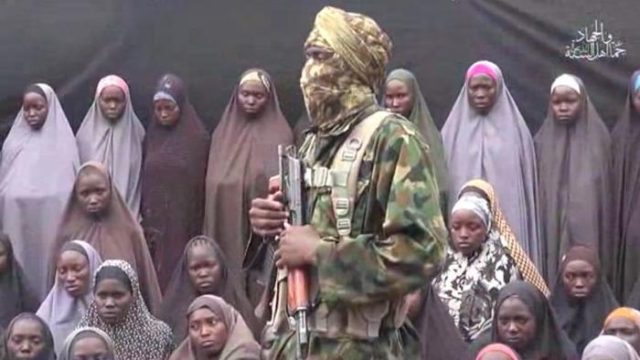Global Issues
Boko Haram’s Intellectual Challenge -By Chidi Amuta


The shooting war in Nigeria’s troubled North East is winnable in the long run. But the restoration of peace and order in the afflicted area will be a protracted and frustrating process. While the Nigerian military is experienced in fighting conventional wars with clear front lines, a known enemy and knowable objectives. I am not so sure about our capacity for unconventional, let alone psychological warfare. Even more tasking is a war that touches on some of the raw sectarian and cultural nerves that sustain our yet unsettled federation. With Boko Haram, a prodigal version of a major faith has been weaponised.
Boko Haram detests western education and civilization even if spreads its message via the Internet. It prefers a theocracy to a secular state. Its diehard jihadis would prefer to live in a caliphate ruled by mullahs deriving ultimate authority from the Islamic holy book with ultimate accountability to Allah .
All these run counter to the fundamental secular assumptions on which the Nigerian state is founded. Nigeria is supposedly pursuing modernisation through western education tempered by local sensibilities. The grund norm of Nigeria’s secular state remains the constitution. Nigerians remain free to worship whatever they like in any way they choose for as long as such worship does not violate the rights of other citizens nor question the supremacy of the ultimate guarantor of our secular order: the federal government.
The critical battle in Nigeria’s counter insurgency war against Boko Haram , therefore , ought first and foremost to be a battle for the hearts and minds of those citizens whom the terrorists have indoctrinated away from the secular essence of national communal living. Citizenship of the state precedes candidacy for heavenly salvation.
The second battle is the physical one in the arid and semi arid theatres of the north east. It is much easier to buy bigger guns than the terrorists. It is also straightforward to physically outgun terrorists even though it can be quite dangerous. Over time, those who try to press their viewpoint through IEDs, surprise attacks on soft targets and suicide bombing can be put out of business by a determined military and security apparatus.
The military is well within its professional limits if they focus on the physical defeat of the insurgents. Their task is to secure the territorial integrity of the Nigerian space and ensure a peaceful and orderly environment in which citizens are free to believe and worship.
But that professional imperative is proving daunting. It is daunting because the territory occupied by Boko Haram is not strictly physical; it is an area of belief, lodged in the mind. It is mental and intractable because it is lodged in the terrain of faith. Its dangerous faith has gained some ground because the social and economic desperation of its host communities makes ‘another life’ an attractive prospect. These people see no prospect of earthly happiness in the present order and so readily embrace the promise of fulfillment in heaven as espoused by most faiths. In this psychological wilderness, a military that sees sovereignty as physical territory is limited. Today, national territorial sovereignty must now encompass a community of feelings and beliefs, not just space.
Thus, the mental reconversion of whole populations away from the jihadist mindset on which Boko Haram germinated and took roots is a tougher battle. I doubt that this psychological warfare has even begun in Nigeria’s north east. That is one reason why Boko Haram is proving a more stubborn adversary than planners previously projected.
Therefore when the Dapchi girls were returned to the town by a flotilla of mysterious ‘Boko Haram’ vehicles, it was an excited citizenry that trooped out to greet the terrorists as heroes. That fleeting symbolic moment ought to have sent a lesson to our military strategists.
The design and deployment of an appropriate psychological operation to win back the hearts and minds of the people is not strictly a matter for the military. It is a collaborative and multi faceted.
It is first and foremost an intellectual challenge requiring serious research and deployment of educationists, community development personnel , development experts and right minded Islamic scholars. We need to quickly de-radicalize our kids in the north east as well as the general population.
The road to mental reconversion will lead to where we should have started: the desperate poverty and economic depression of the region- statistics on education, GDP and entrepreneurship etc.
In a bid to deepen my understanding of the altered state of our national security, I have made a curious discovery. Boko Haram has an intellectual challenge which may not have interested those engaged in our anti-terrorism campaign. So many books have recently been published internationally mostly by foreign writers intent on a better understanding of Nigeria’s security.
Most of the books are written by non Nigerians with intellectual . interest in the subject. Through them, one gets unusual insight into the origins, motivations, complexity and strategic meaning of Boko Haram.
(1. Associated Press- Boko Haram, Deadly Terrorism in Nigeria 2. I. B Taurus- Boko Haram, Deadly Terrorism in Nigeria 3. Andrew Walker- Harrowing of Nigeria and the Rise of Boko Haram 4. Ed. Marc- Antoine Perous de Montclos- Boko Haram, Islamist, Politics, Security and the Nigerian State 5. Virginia Comolli- Boko Haram, Nigeria’s Islamist Insurgency 6. Alexander Thurstan – Boko 6. Haram, the History of an African Jihadist Movement 7. Helon Habila- The Chibok Girls, The Boko Haram Kidnappings 8. N.I.O & D.L-B – Boko Haram, Between Myth and Reality).
Nearer home, nothing illustrates the intellectual deficiency of Nigeria’s anti terrorism war than the fabled immortality of Mr. Shekau. The notorious arrowhead of the theocratic uprising has ‘died’ at least half a dozen times by the claims of the Nigerian military. The fellow has greeted each tale of his demise with more viral videos of his familiar taunts of Mr. Buhari and other world leaders bent on liquidating his brand of fundamentalist madness.
What remains curious and even inexplicable is that on a few instances ofShekau’s legendary ‘deaths’, the military has displayed photographs of his lifeless body. In an age of accurate DNA sampling, dental record mapping and precise satellite guided monitoring of high value targets and extensive use of human intelligence, it is incomprehensible that a modern military apparatus cannot say with certainty whether its most valued target is dead or alive.
Beyond political grand standing by the military high command, a proper perspective of the Boko Haram insurgency must see the totality of its strategic implications for our national security and survival.
The overall doctrine of Nigeria’s security and defense policy has not changed since the civil war: to keep nigeria united at all costs and to maintain an atmosphere of peace and order in which our diversity can thrive.
But in the first four decades after the war, other challenges to the post war order have emerged. The post civil war order in which huge sectional blocs were structurally incapacitated and replaced by a strong federal government (‘federal might’) has in recent times become untenable. Threats from micro nationalism, renascent ethnocentrism and radical sectarian revivalism have emerged to question the prevailing order. The federal government as ultimate guarantor of order has become enfeebled by political and economic disabilities. It’s Security umbrella is in tatters and dangerously overstretched.
Preoccupied with regime political survival, successive administrations have found little time to strategize on the plight of the federation. Each of the new threats to our national continuation dictates a fresh doctrine based on the geo strategic importance of the specific theatre of insecurity.
The Niger Delta is self evident. It is the soft underbelly of the federation that harbors the nation’s current energy heart and economic life line.
The south east is a bit more problematic. It is the home base of the single most widespread/dispersed nationality in the country. Open direct antagonism against the Igbos will quickly destabilize every section of nigeria.
The middle belt is the mid section of the great cultural and sectarian divide that is also the strength of the federation.
The North east theatre of Boko Haram is more dangerous strategically. It is part of the heartland of Islamic nigeria. It has borders with Nigeria’s vulnerable neighbors where however French is spoken and france’s African defense umbrella dovetails with nigeria’s national survival interests.
There are other small incidental forces at play including the gangs that frequently emerge at night to kill and maim in Zamfara, Nasarawa, Taraba, Adamawa, Yobe etc.
Any defense and security doctrine that approaches all areas of Nigeria’s insecurity experience from a uniform strategic perspective is outmoded and even foolish. It is time for our national defense and security to assume a deeper, more rigorous intellectual approach. Boots on the ground can not trample to death an enemy whose base camp is in the hearts of many.
• Dr. Chidi Amuta, a Member of Thisday Editorial Board, is Chairman, Wilson & Weizmann Associates, Lagos.

















